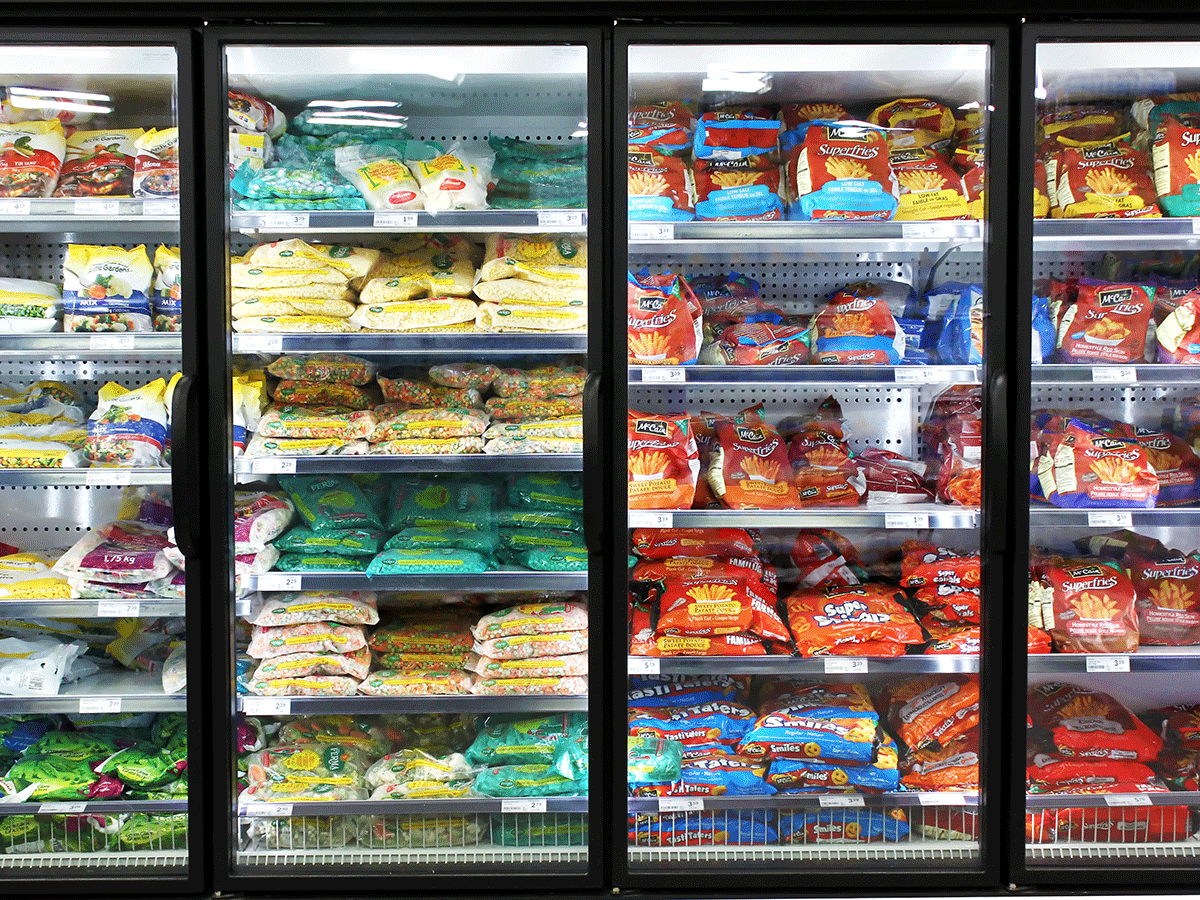
Nutritionist-approved frozen food buys
There are a lot of things you can buy in the frozen food aisle, and some of the options are healthier than others. You can get ice cream, pizza, and french fries, of course, but those shelves are also stocked with things like frozen vegetables. There are quick-to-prepare foods that are healthy but you may need to choose carefully, as there are many seemingly healthy frozen foods to avoid.
Nutritionists from around the country share what’s on the top of their frozen foods must-have list, including foods they buy fresh and freeze, or pick up from the frozen foods section. (Hint: Pizza is included too.)
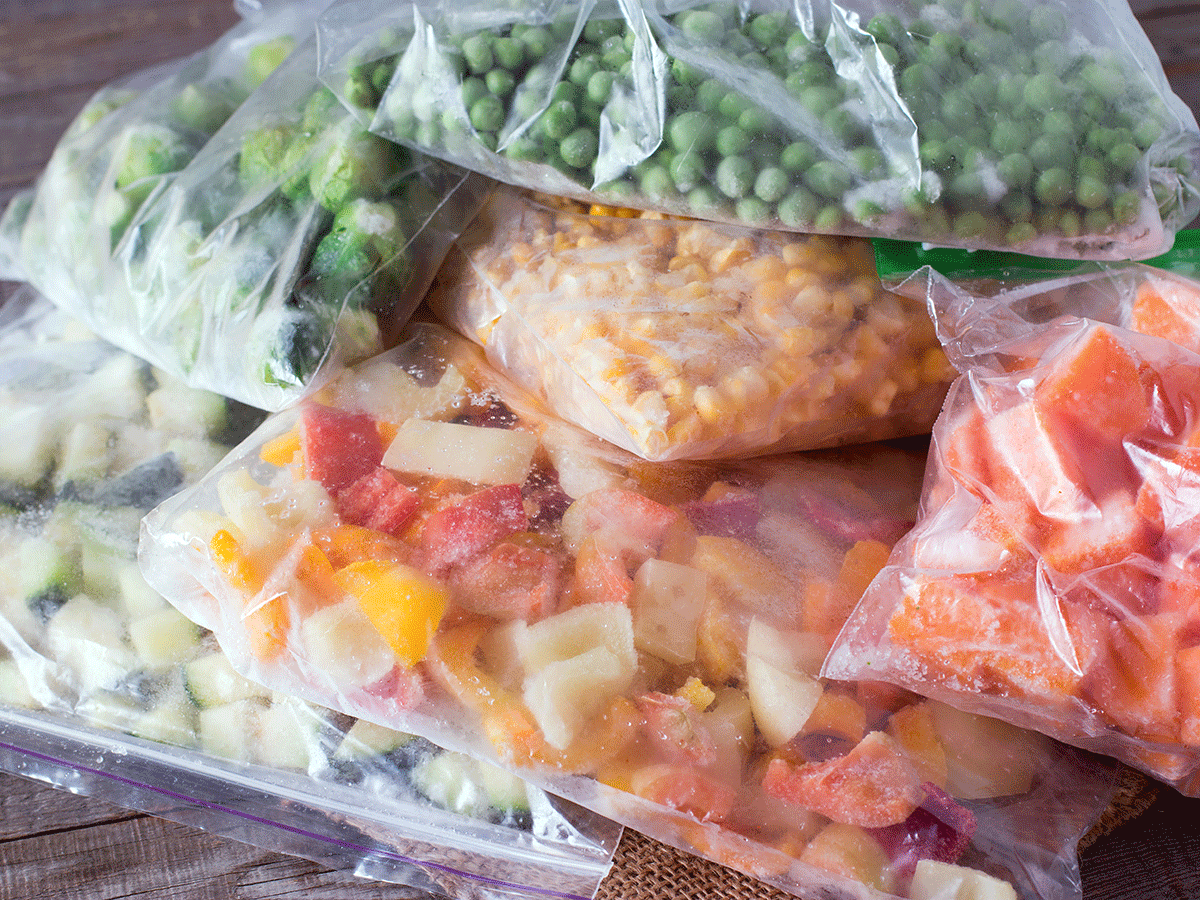
Vegetables
It’s not surprising that nutritionists love keeping frozen fruits and vegetables at home. For Deborah Malkoff-Cohen, MS, RD, CDN, CDE, a New York City-based registered dietitian, keeping pre-chopped veggies in her fridge is one way to make sure she is always prepared to create healthy meals. However, she also buys, chops, and freezes whole, fresh vegetables based on what is available and budget-friendly.
“I keep these to make homemade soups,” she says. “I add extra frozen vegetables like butternut squash, peas, broccoli, spinach; or anything spiralized whatever I have on hand.” Some of her favorite frozen vegetables include spinach, butternut squash, peas, broccoli, and carrots. She even bulk-makes the soup and freezes it already made.
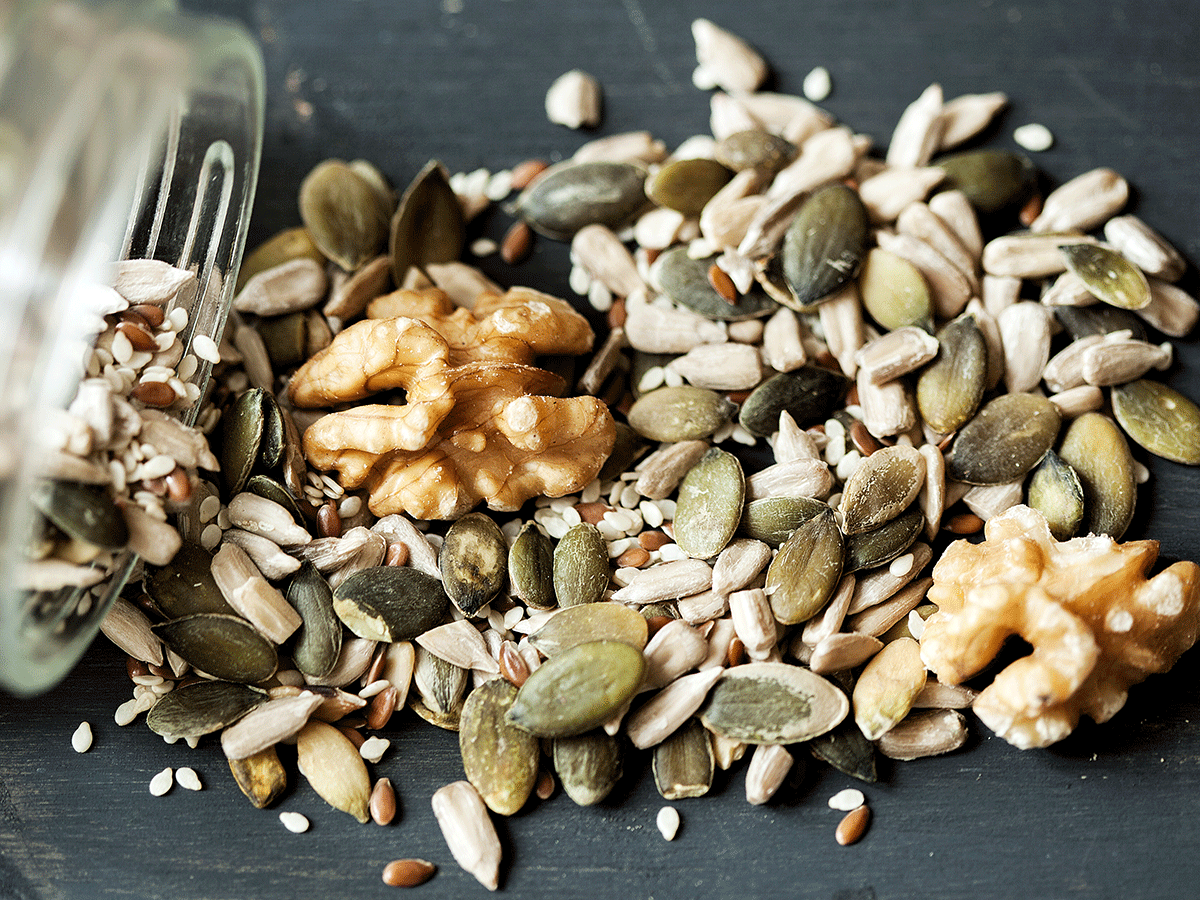
Nuts and seeds
Peanuts, almonds, walnuts, pistachios, and other nuts are nutritional powerhouses that are a fantastic source of plant-based protein, healthy fats, fibre, and vitamins and minerals, says Malina Linkas Malkani, MS, RDN, CDN, media spokesperson for the Academy of Nutrition and Dietetics. Keeping these nuts, as well as seeds in the freezer, however, is a little-known hack Malkani uses to keep them fresh. “Because of their high oil content, nuts and seeds can go rancid within a few weeks if not stored properly,” she says. “Freezing is a great option that helps me save money and prevent food waste.”
The nuts freeze well for a year, or even longer, in a well-sealed, freezer-safe container, Malkani says. Bonus tip: She suggests adding them to smoothies, soups, stews, dips, casseroles, baked goods, or using them to top salads and yogurt. Our favourite way to use them? In these energy bites, balls, and bars.
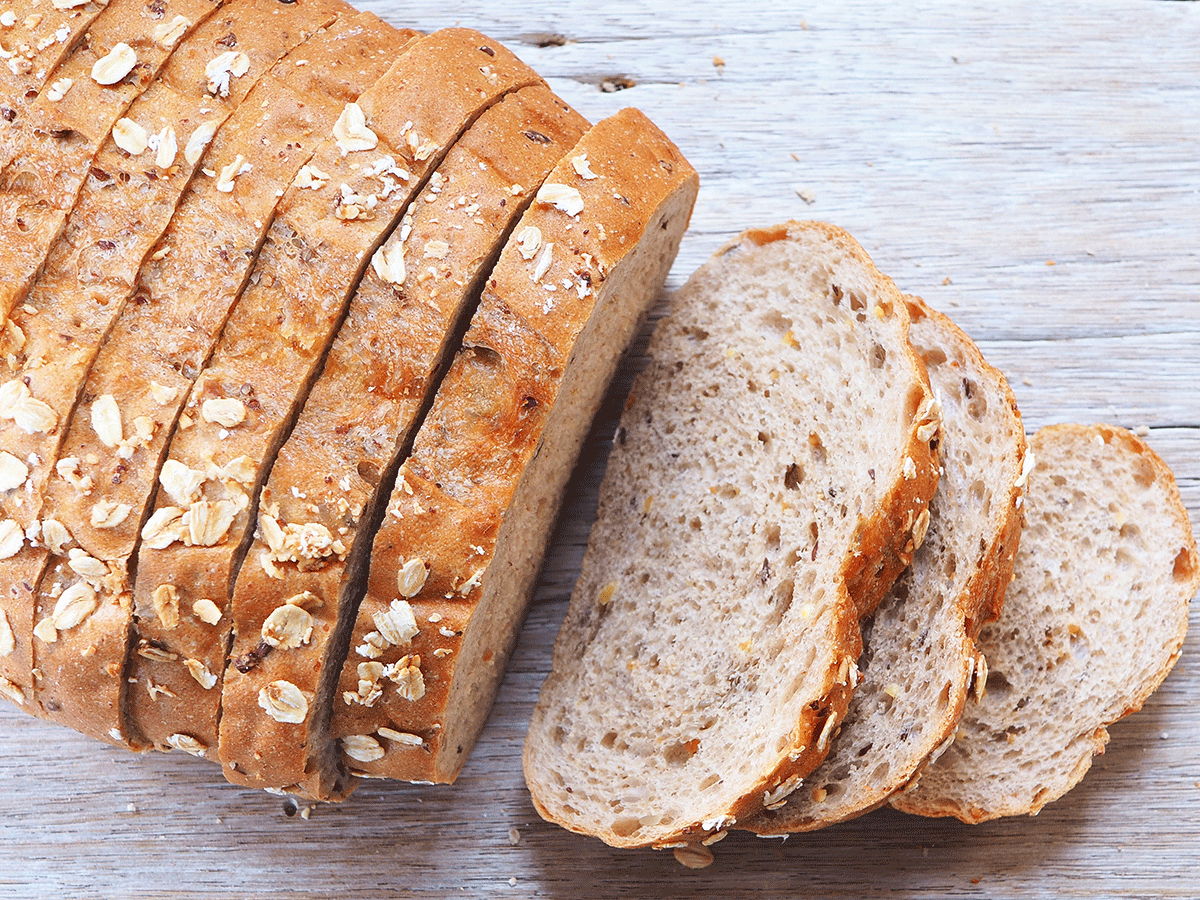
Bread
Frozen bread is a popular staple amongst nutritionists. Kris Sollid, RD, senior director of nutrition communications at the International Food Information Council Foundation, says he freezes everything from sandwich bread and English muffins to baguettes and bagels. Not only does freezing make the bread last longer, stretching your dollar, but it also doesn’t change the taste or consistency of the bread.
Sollid tries to eat 100 percent whole wheat bread most of the time. “Whole grains provide fibre, which is good for health in many ways,” he says. “Fibre can help lower cholesterol, lower the risk for certain types of cancer, improve blood sugar control, keep you feeling full for longer and, most importantly for some, relieve constipation.” Most Americans eat only half the recommended amount—38 grams for men and 25 grams for women—per day, Sollid says. Although, Malkani recommends sprouted grain breads which are also a good source of fibre, are more easily digestible, and last two to three months in a freezer-safe bag. She suggests toasting some slices for breakfast, using it for sandwiches, or tossing it in the food processor to make breadcrumbs for various recipes.
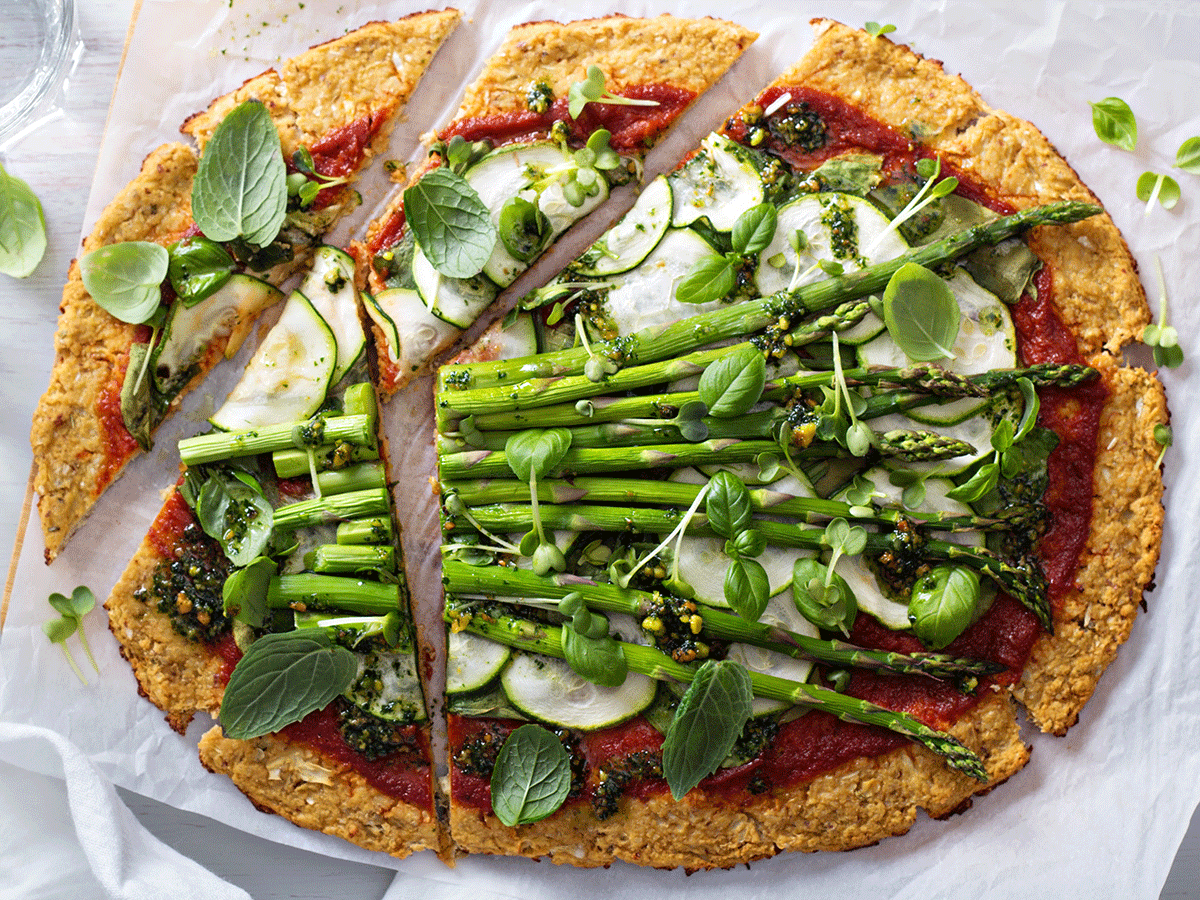
Caulifower pizza
Caulipower offers frozen gluten-free, cauliflower pizza crusts that are a great alternative to a traditional pie thanks to fewer calories. “I usually add broccoli, bell peppers, and onions on top of the pie to increase the veggie and antioxidant content,” Aguirre says. “I also add lean chicken to increase the protein content.” For half a caulipower pie, there are 12 grams of protein, 5 grams of saturated fat, 3 grams of fibre, and 470 milligrams of sodium.We love PC’s Cauliflower Pizza Crust. (Also, here’s how to make cauliflower crust.)
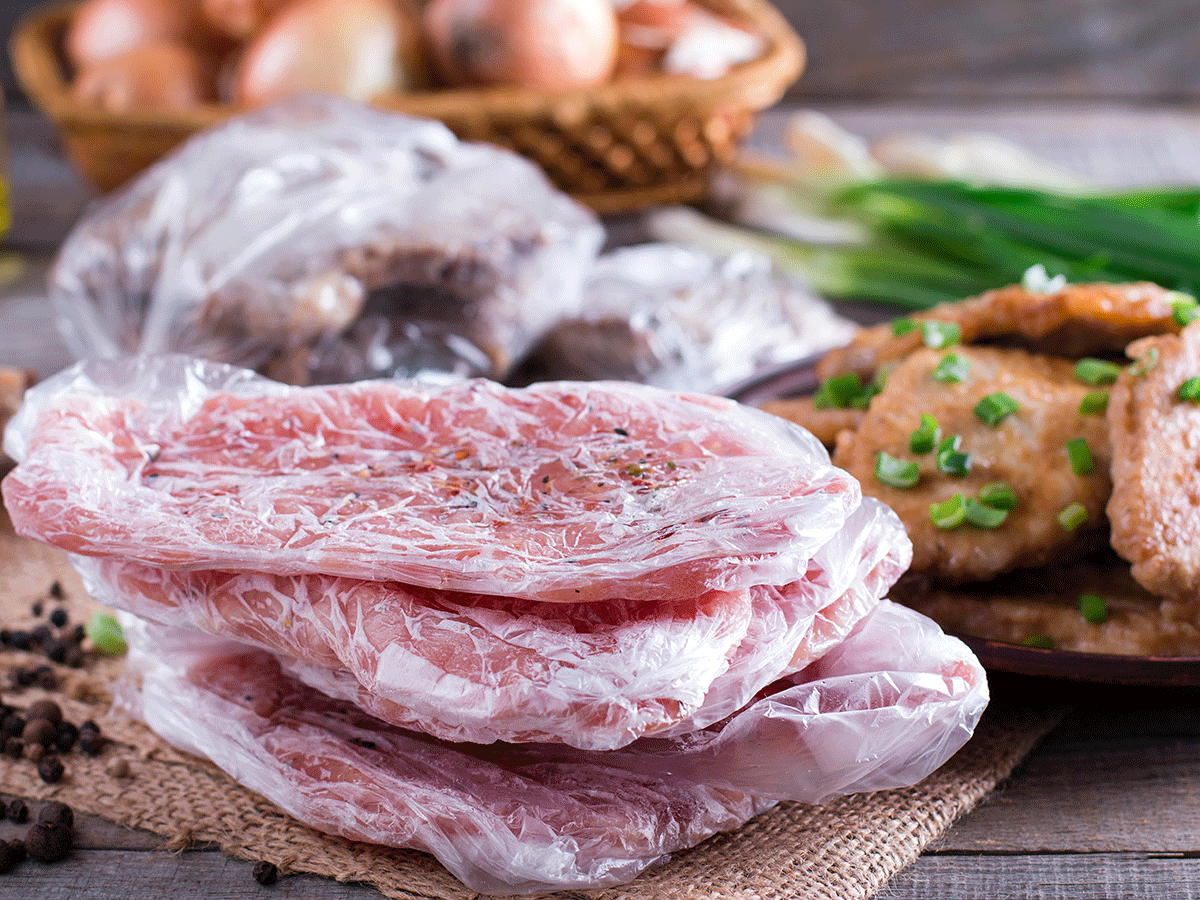
Proteins
Freezing, or buying pre-frozen proteins, is a great way to save time and money on meal prep. Malkoff-Cohen makes lean turkey meatballs and meat sauce in bulk and freezes it for the week. She buys frozen wild salmon and shrimp, too. “The wild salmon I take out the night before to defrost and bake in the oven,” she says. “Shrimp is so easy to just stir-fry with veggies.”
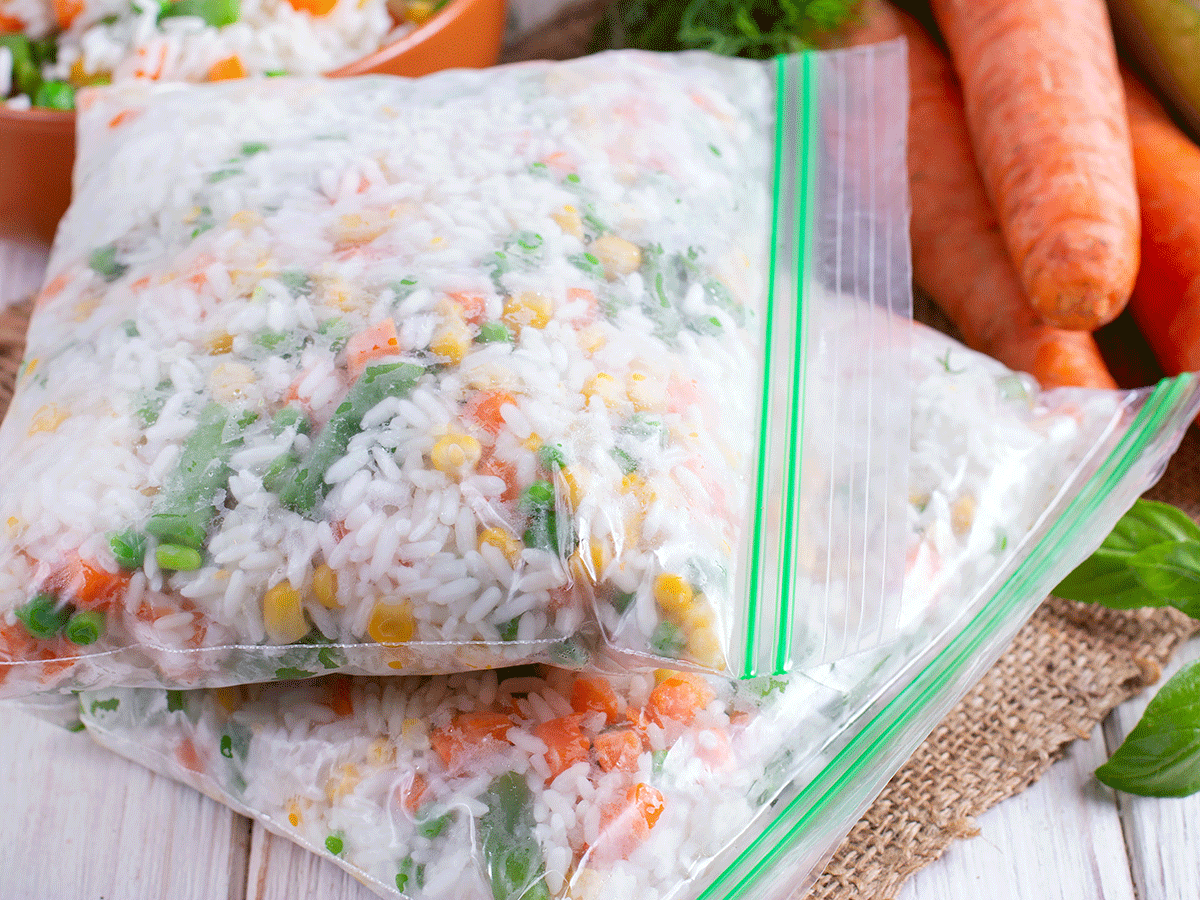
Rice
Celebrity dietitian Lisa DeFazio, MS, RD, in Los Angeles, buys steam bags of frozen rice to make for a quick car side dish. “Rice is a great source of whole grains and carbohydrates, but takes a while to make,” she says. “Frozen rice is just as nutritious and ready in minutes.” Use rice in this Greek-style bowl.
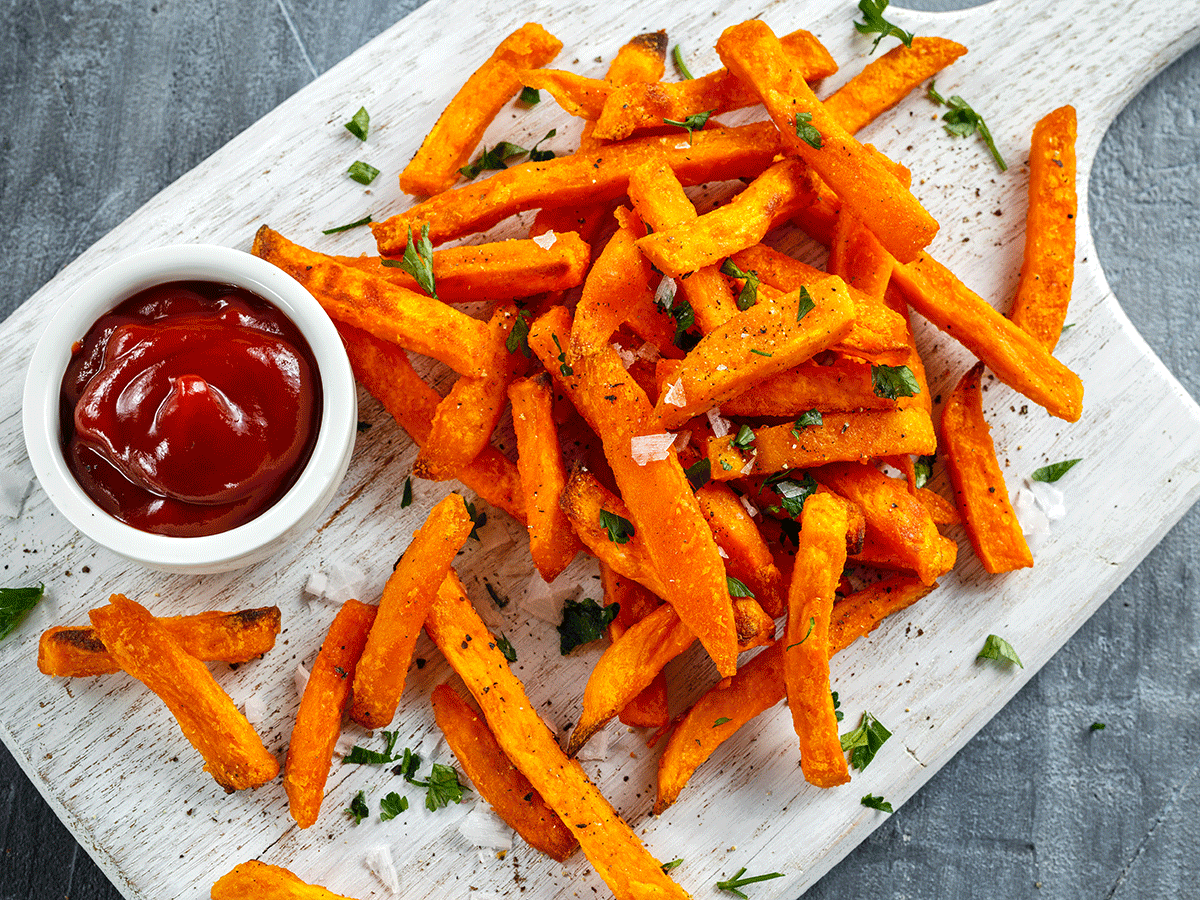
Fries
Yes, fries can be part of a healthy diet. DeFazio likes the Alexia frozen sweet potato fries for a healthy side dish since they are both tasty and healthy. These all-natural fries are made with sea salt and are ready in 20 minutes.
Next, check out these storage tips for keeping frozen foods fresh.
